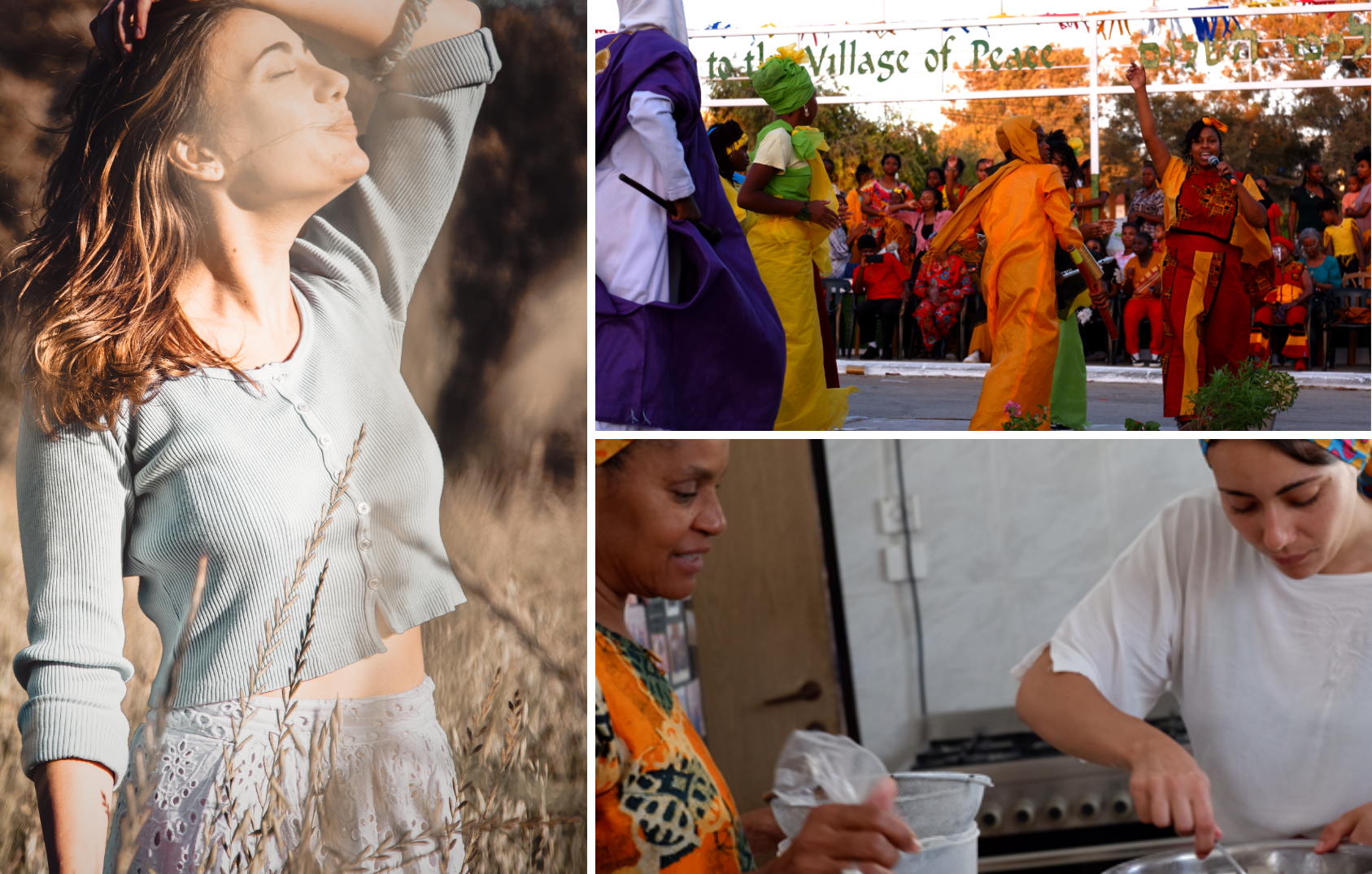Lucya Passiatore: anthropological fieldwork in a vegan community in Israel's Negev desert
Lucya Passiatore, a Master's Student in anthropology at Tallinn University, summarizes her anthropological fieldwork, which she did in a vegan commune in the Negev desert in Israel that had been operating for 54 years.

Mine is not the story of a typical student who had clear plans for the future. I didn't enroll in a Master's degree in Anthropology because I loved the subject. In fact, until a few years ago, I didn't even know the meaning of the word ‘anthropology’. What I did know was that I loved traveling, listening to people’s stories, understanding local routines and practices, and asking existential questions. I loved learning, observing, listening, and then amplifying the voice of my informants through my writing.
I didn't know the name of what I was doing; I didn't even believe it was a part of any academic category. A little later, I discovered that I was practicing anthropology, a social science that I could study and contribute to. From that moment on, everything changed.
As an environmental activist, my attention has always been directed toward ecological injustices, for the well-being of both humans and non-humans (animals and ecosystems). My aim was to bring sustainable changes and aspire to a cruelty-free world.
My pre-fieldwork anthropology classes at Tallinn University allowed me to perceive and relate to the global climate crisis in a way that I would never have accomplished on my own. Reading about the anthropology of sensory experience taught me that the prevailing sense in the European culture is sight and aesthetics: "seeing is believing”. Nonetheless, I couldn’t help but wonder: why is it taking so long to act despite the obvious visual signs of global climate change? Why do so few people choose to pursue healthy and sustainable lives?
Why do so few people choose to pursue healthy and sustainable lives?
Thanks to the Dora Plus scholarship, provided by the European Regional Development Fund and the Estonian government, I was able to travel for my MA fieldwork. In July 2022, I reached the African Hebrew Israelites of Jerusalem, a 54-year-old vegan community based in the Negev desert of Israel. This was the place where I found a compelling relationship between the human senses and climate change. To properly study this phenomenon, I realized that I could not limit myself to the ‘visible’ world – I needed to go much deeper. I began to think about the sound of climate change.
They say that "a picture is worth a thousand words", but how deep into the soul can a sound go? My research became an environmentally sound ethnography of the African Hebrew Israelites of Jerusalem.
Now that I am writing my thesis, months after fieldwork in Jerusalem, I can say that the community has made sense of all my initial questions. Therefore, in order to articulate this work as effectively as possible, I decided to combine two approaches. On one level, I focused on storytelling through my written dissertation: I wanted the text to be relatable to everyone, regardless of their level of education. In addition, I produced a documentary film to inspire others to pursue sustainable, animal-friendly choices.
To this day, I don't believe I could have ever applied myself that deeply to a problem if it not through anthropology. Some might say that anthropology was love at first sight for me, but I think there was a different dynamic at play: I loved anthropology even before I was officially introduced to the field.
Featured image: the author and his photographs of the life of the commune.